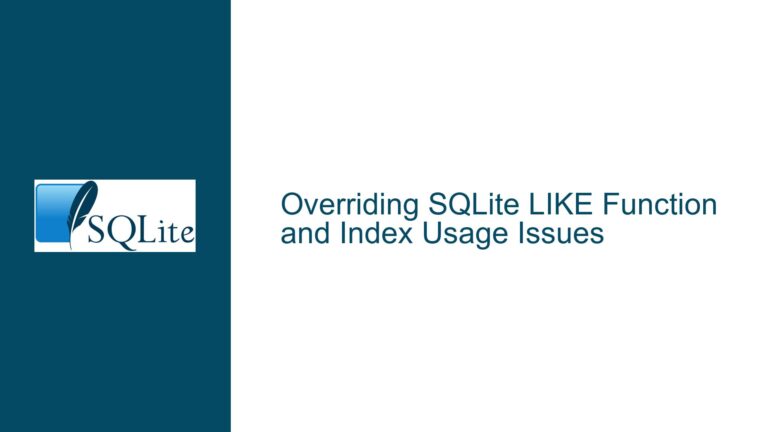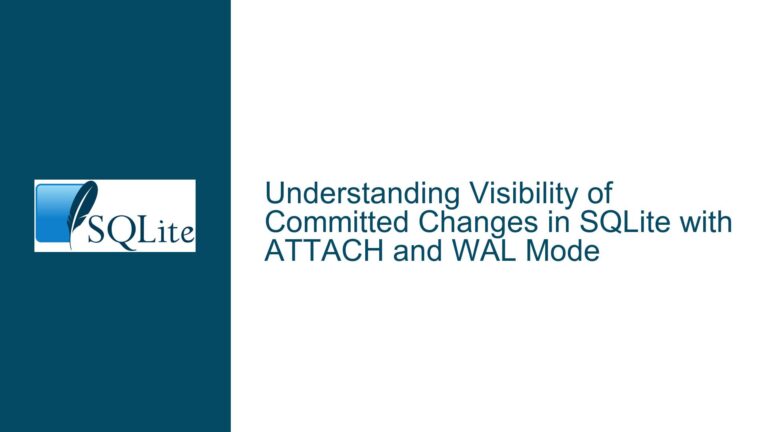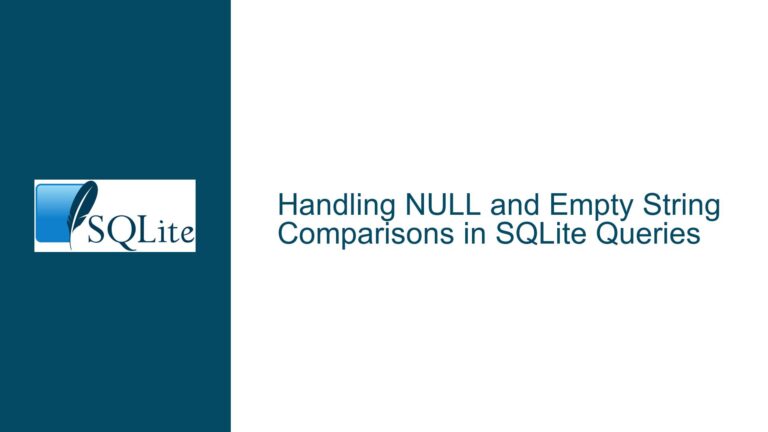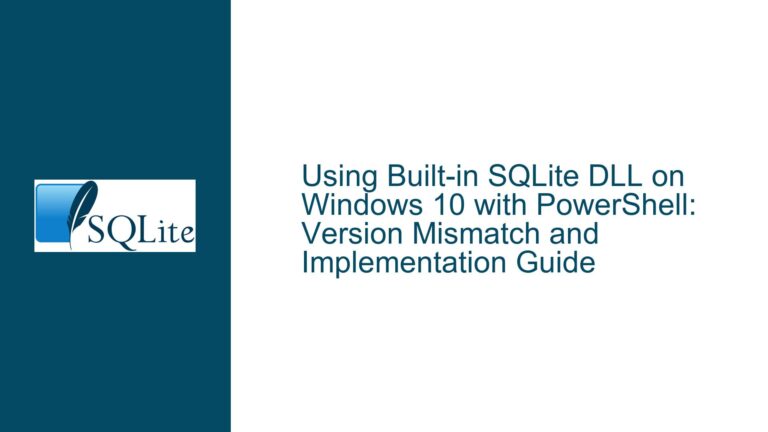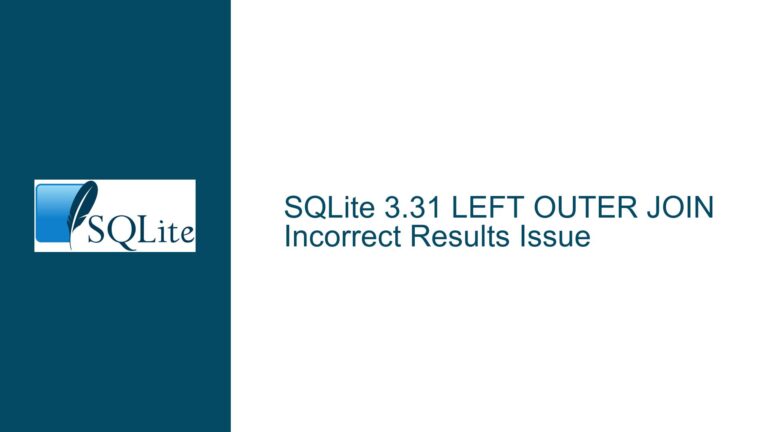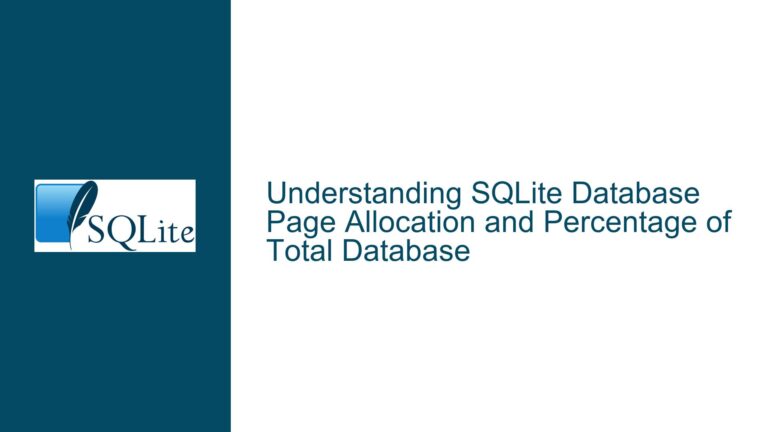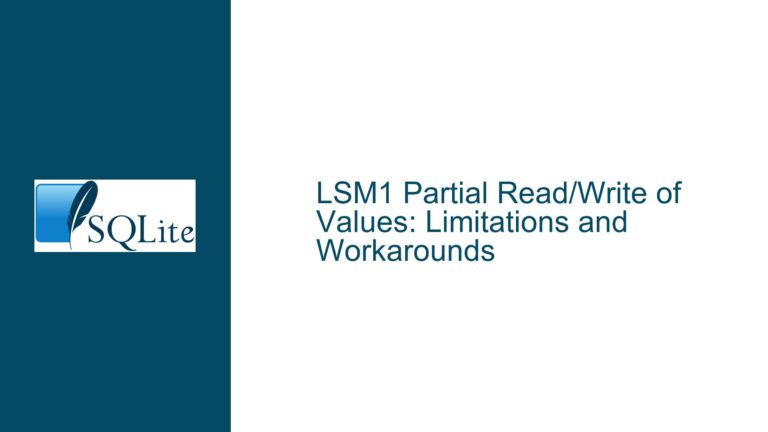Overriding SQLite LIKE Function and Index Usage Issues
Overriding LIKE Function Disables Index Optimization in SQLite When you override the default LIKE function in SQLite using sqlite3_create_function_v2(), the query optimizer can no longer utilize indexes for pattern matching queries. This behavior is by design, as SQLite cannot guarantee that the custom LIKE function adheres to the same semantics as the built-in LIKE function….
